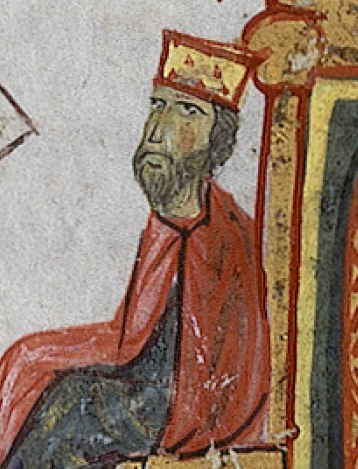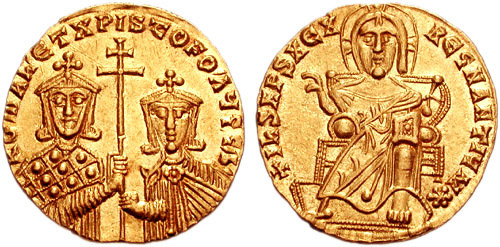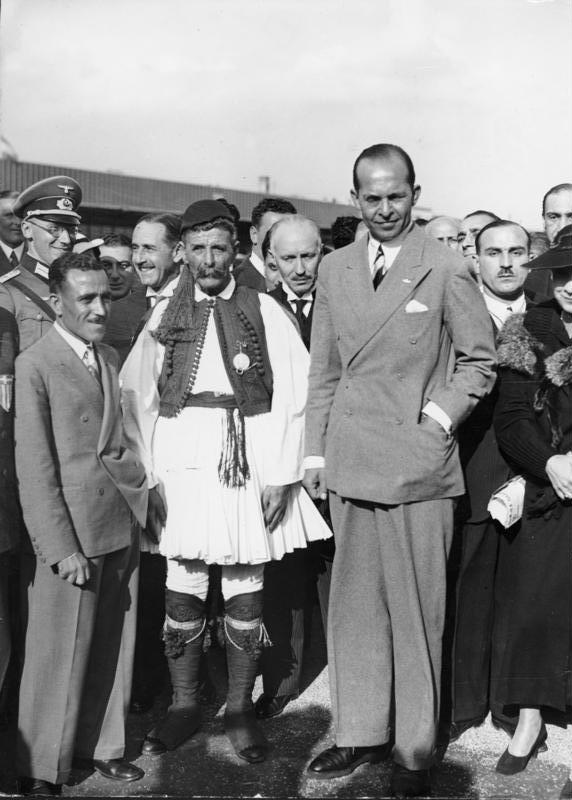|
Stratarchai
( el, στρατάρχης, pl. (archaic) or (modern)), means ''ruler of the army'' in Greek, and is a title associated with successful generals. In modern Greek usage, it corresponds to the rank of Field Marshal. Byzantine Empire The term originated in the Byzantine Empire, where, in the 9th to 11th centuries, the were a class of senior officials in charge of military finances and administration, including the (commander of the foreign imperial guards), the ''droungarios'' of the Fleet, the who supervised the army's horse-breeding farms, the (Count of the Stable) and the of the . By the late 11th century, this technical meaning was forgotten, and the term , along with variants such as ('grand ') and ('all-'), came to be used as an honorific epithet for important generals. In this use it is for instance used to describe the famed literary hero Digenis Akritas, or famous past commanders, such as Belisarius. Modern Greece In modern Greek history, the title (modern ... [...More Info...] [...Related Items...] OR: [Wikipedia] [Google] [Baidu] |
Hetaireiarches
The ( grc-gre, ἑταιρειάρχης), sometimes anglicized as Hetaeriarch, was a high-ranking Byzantine officer, in command of the imperial bodyguard, the . In the 9th–10th centuries there appear to have been several , each for one of the subdivisions of the , but in later times only the senior of them, the ( grc-gre, μέγας ἑταιρειάρχης) or Great Hetaeriarch survived, eventually becoming simply a high court rank in the 12th–15th centuries. History The Imperial (, ) was a bodyguard regiment of the Byzantine emperors in the 9th–11th centuries, originally recruited mainly from among foreigners. It is first mentioned in 812, as a bodyguard for the emperor on campaign, but its origin is obscure. The Imperial of the 9th–10th centuries was divided in several units: three or four according to the sources, distinguished by their epithets and each, at least originally, under is respective . Thus the commanded the 'Great ' (, ). He was the senior of the mil ... [...More Info...] [...Related Items...] OR: [Wikipedia] [Google] [Baidu] |
Droungarios Of The Fleet
The ''droungarios'' of the Fleet ( el, δρουγγάριος τοῦ πλοΐμου/τῶν πλοΐμων, ''droungarios tou ploïmou/tōn ploïmōn''; after the 11th century δρουγγάριος τοῦ στόλου, ''droungarios tou stolou''), sometimes anglicized as Drungary of the Fleet, was the commander of the Imperial Fleet (βασιλικὸς στόλος, ''basilikos stolos'', or βασιλικὸν πλόϊμον, ''basilikon ploïmon''), the central division of the Byzantine navy stationed at the capital of Constantinople, as opposed to the provincial ( thematic) fleets. From the late 11th century, when the Byzantine fleets were amalgamated into a single force under the '' megas doux'', the post, now known as the Grand ''droungarios'' of the Fleet (μέγας δρουγγάριος τοῦ στόλου, ''megas droungarios tou stolou''), became the second-in-command of the ''megas doux'' and continued in this role until the end of the Byzantine Empire. Backgroun ... [...More Info...] [...Related Items...] OR: [Wikipedia] [Google] [Baidu] |
Logothetes Ton Agelon
The ''logothetēs tōn agelōn'' ( el, ), in English the Logothete of the Herds, was the Byzantine official responsible for the state-run estates ('' mētata'') in western Asia Minor that reared horses and mules for the Byzantine army and the imperial Public Post. History and functions The Byzantine office appears in the 9th century and is commonly accepted to be the evolution of the 4th-century Roman '' praepositus gregum et stabulorum'', who was subordinate to the '' comes res privatae''. Uniquely among the logothetes, the ''logothetēs tōn agelōn'' is listed among the high military officials ('' stratarchai'') in the 899 '' Klētotologion'' of Philotheos, 40th in the hierarchy from the emperor, highlighting the office's close connection with the army... The importance of the office increased from the 10th century, reaching its zenith in the late 13th century, when it was held by several of the most important state officials. Subordinate officials The subordinates of the ' ... [...More Info...] [...Related Items...] OR: [Wikipedia] [Google] [Baidu] |
Count Of The Stable
The Count of the Stable ( la, comes stabuli; grc-gre, κόμης τοῦ σταύλου/στάβλου, komes tou staulou/stablou) was a late Roman and Byzantine office responsible for the horses and pack animals intended for use by the army and the imperial court. From Byzantium, it was adopted by the Franks, and is the origin of the post and title of constable, via the Old French . History and functions The post first appears in the 4th century as the ('tribune of the acredstable'), initially responsible for the levying of horses from the provinces.. According to Ammianus Marcellinus, the holders of the post ranked equal to the tribunes of the guard regiments. In the , they are listed as the under the .. , XIV.6. By the early 5th century, as attested in the , they were raised to with the rank of , but the older title of tribune remained in parallel use for some time (cf. , 6.13.1). Eight holders of the office are known from the 4th century, including Emperor Valens () and ... [...More Info...] [...Related Items...] OR: [Wikipedia] [Google] [Baidu] |
Protospatharios
''Prōtospatharios'' ( el, πρωτοσπαθάριος) was one of the highest court dignities of the middle Byzantine period (8th to 12th centuries), awarded to senior generals and provincial governors, as well as to foreign princes. History The meaning of the title, "first ''spatharios''", indicates its original role as leader of the order (''taxis'') of the ''spatharioi'', the imperial bodyguards, was already attested in the 6th century. Probably under the Heraclians, the rank became an honorary dignity (Greek: δια βραβείου ἀξία, ''dia brabeiou axia''), and was henceforth bestowed to high-ranking theme commanders, senior court officials, and allied rulers.. The first concrete reference to a ''prōtospatharios'' occurs in the ''Chronicle'' of Theophanes the Confessor, who records "Sergios, ''prōtospatharios'' and '' stratēgos'' of Sicily" in 718. In the late 9th century, the ''prōtospatharios'' is recorded as ranking below the ''patrikios'' and above the ''di ... [...More Info...] [...Related Items...] OR: [Wikipedia] [Google] [Baidu] |
Field Marshal
Field marshal (or field-marshal, abbreviated as FM) is the most senior military rank, ordinarily senior to the general officer ranks. Usually, it is the highest rank in an army and as such few persons are appointed to it. It is considered as a five-star rank (OF-10) in modern-day armed forces in many countries. Promotion to the rank of field marshal in many countries historically required extraordinary military achievement by a general (a wartime victory). However, the rank has also been used as a divisional command rank and also as a brigade command rank. Examples of the different uses of the rank include Austria-Hungary, Pakistan, Prussia/Germany, India and Sri Lanka for an extraordinary achievement; Spain and Mexico for a divisional command ( es, link=no, mariscal de campo); and France, Portugal and Brazil for a brigade command (french: link=no, maréchal de camp, pt, marechal de campo). Origins The origin of the term dates to the early Middle Ages, originally meaning ... [...More Info...] [...Related Items...] OR: [Wikipedia] [Google] [Baidu] |
Paul Of Greece
Paul ( el, Παύλος, ''Pávlos''; 14 December 1901 – 6 March 1964) was King of Greece from 1 April 1947 until his death in 1964. He was succeeded by his son, Constantine II. Paul was first cousin to Prince Philip, Duke of Edinburgh and father-in-law to Juan Carlos I of Spain. Early life Paul was born on 14 December 1901 at the Tatoi Palace in Attica north of Athens, the third son of King Constantine I of Greece and his wife, Princess Sophia of Prussia. He trained as an army officer at the Royal Military College, Sandhurst and later at the Hellenic Military Academy in Kypseli, Athens. Paul was an army officer cadet in the Coldstream Guards and Lieutenant with the Evzones. From 1917 to 1920, Paul lived in exile with his father, Constantine I. From 1923 to 1935, he lived in exile again in England, this time with his brother, George II. He worked briefly in an aircraft factory under an alias, and through Viscount Tredegar met and befriended notorious literary muse Denham ... [...More Info...] [...Related Items...] OR: [Wikipedia] [Google] [Baidu] |
Field Marshal
Field marshal (or field-marshal, abbreviated as FM) is the most senior military rank, ordinarily senior to the general officer ranks. Usually, it is the highest rank in an army and as such few persons are appointed to it. It is considered as a five-star rank (OF-10) in modern-day armed forces in many countries. Promotion to the rank of field marshal in many countries historically required extraordinary military achievement by a general (a wartime victory). However, the rank has also been used as a divisional command rank and also as a brigade command rank. Examples of the different uses of the rank include Austria-Hungary, Pakistan, Prussia/Germany, India and Sri Lanka for an extraordinary achievement; Spain and Mexico for a divisional command ( es, link=no, mariscal de campo); and France, Portugal and Brazil for a brigade command (french: link=no, maréchal de camp, pt, marechal de campo). Origins The origin of the term dates to the early Middle Ages, originally meaning ... [...More Info...] [...Related Items...] OR: [Wikipedia] [Google] [Baidu] |
Constantine I Of Greece
Constantine I ( el, Κωνσταντίνος Αʹ, ''Konstantínos I''; – 11 January 1923) was King of Greece from 18 March 1913 to 11 June 1917 and from 19 December 1920 to 27 September 1922. He was commander-in-chief of the Hellenic Army during the unsuccessful Greco-Turkish War of 1897 and led the Greek forces during the successful Balkan Wars of 1912–1913, in which Greece expanded to include Thessaloniki, doubling in area and population. He succeeded to the throne of Greece on 18 March 1913, following his father's assassination. Constantine’s disagreement with Eleftherios Venizelos over whether Greece should enter World War I led to the National Schism. He forced Venizelos to resign twice, but in 1917 he left Greece, after threats by the Entente forces to bombard Athens; his second son, Alexander, became king. After Alexander's death, Venizelos' defeat in the 1920 legislative elections, and a plebiscite in favor of his return, Constantine was reinstated. He abd ... [...More Info...] [...Related Items...] OR: [Wikipedia] [Google] [Baidu] |
Balkan Wars
The Balkan Wars refers to a series of two conflicts that took place in the Balkan States in 1912 and 1913. In the First Balkan War, the four Balkan States of Greece, Serbia, Montenegro and Bulgaria declared war upon the Ottoman Empire and defeated it, in the process stripping the Ottomans of its European provinces, leaving only Eastern Thrace under the Ottoman Empire's control. In the Second Balkan War, Bulgaria fought against the other four original combatants of the first war. It also faced an attack from Romania from the north. The Ottoman Empire lost the bulk of its territory in Europe. Although not involved as a combatant, Austria-Hungary became relatively weaker as a much enlarged Serbia pushed for union of the South Slavic peoples. The war set the stage for the Balkan crisis of 1914 and thus served as a "prelude to the First World War". By the early 20th century, Bulgaria, Greece, Montenegro and Serbia had achieved independence from the Ottoman Empire, but large eleme ... [...More Info...] [...Related Items...] OR: [Wikipedia] [Google] [Baidu] |
George II Of Greece
George II ( el, Γεώργιος Βʹ, ''Geórgios II''; 19 July Old_Style_and_New_Style_dates">O.S.:_7_July.html" ;"title="Old_Style_and_New_Style_dates.html" ;"title="nowiki/>O.S.:_7_July">Old_Style_and_New_Style_dates.html"_;"title="nowiki/>Old_Style_and_New_Style_dates">O.S.:_7_July1890_–_1_April_1947)_was_O.S.:_7_July">Old_Style_and_New_Style_dates.html"_;"title="nowiki/>Old_Style_and_New_Style_dates">O.S.:_7_July1890_–_1_April_1947)_was_List_of_kings_of_Greece">King_of_Greece_from_September_1922_to_March_1924_and_from_November_1935_to_his_death_in_April_1947. The_eldest_son_of_King_Constantine_I_of_Greece.html" "title="List_of_kings_of_Greece.html" "title="Old Style and New Style dates">O.S.: 7 July">Old_Style_and_New_Style_dates.html" ;"title="nowiki/>Old Style and New Style dates">O.S.: 7 July1890 – 1 April 1947) was List of kings of Greece">King of Greece from September 1922 to March 1924 and from November 1935 to his death in April 1947. The eldest son of Kin ... [...More Info...] [...Related Items...] OR: [Wikipedia] [Google] [Baidu] |
Alexandros Papagos
Alexandros Papagos ( el, Αλέξανδρος Παπάγος; 9 December 1883 – 4 October 1955) was a Greek army officer who led the Hellenic Army in World War II and the later stages of the subsequent Greek Civil War. The only Greek career officer to rise to the rank of Field Marshal, Papagos became the first Chief of the Hellenic National Defence General Staff from 1950 until his resignation the following year. He then entered politics, founding the nationalist Greek Rally party and becoming the country's Prime Minister after his victory in the 1952 elections. His premiership was shaped by the Cold War and the aftermath of the Greek Civil War, and was defined by several key events, including Greece becoming a member of NATO; U.S. military bases being allowed on Greek territory and the formation of a powerful and vehemently anti-communist security apparatus. Papagos' tenure also saw the start of the Greek economic miracle, and rising tensions with Britain and Turkey during the ... [...More Info...] [...Related Items...] OR: [Wikipedia] [Google] [Baidu] |





